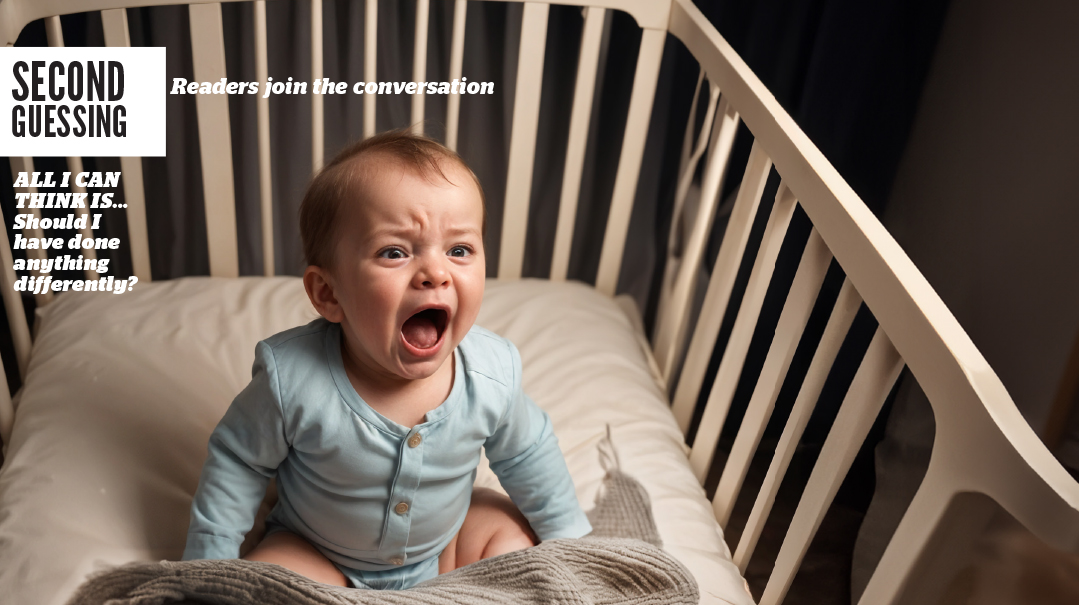Blacklist: Readers join the conversation

All I can think is... Should I have done anything differently?

Last Week:
“Uh, Bassi,” I say, “You saw what happened at the park with that little kid today.”
Bassi laughs. “Gila! The kid fell off the monkey bars, it totally happens.”
Um, ouch. “Oh… kay.” I think about last night, but I bite my tongue. I know Bassi’s big into sleep training, she’s okay with letting her babies cry. And Chaya had played with Mendy and Chelli, they told me all about it. Was she too far away at the park? She did get to the kid before I did…. “Here’s their house number,” I say, and I hang up, feeling no less conflicted but less burdened.
Right up until the next day, when I’m driving back from the grocery for the third time.
Is that… Bassi’s little girl, sitting outside her house, crying?
I pull over and hop out. “Rena? Rena, sweetie, where’s your mother?”
She looks up, tears dripping off her little nose. “She said a babysitter would open the door for me, but I knocked and knocked and nobody—” sob “—is answering!”
And that’s when I feel burdened again.
Because I should have said something to Bassi.
Right?
Make It Clear
Tzippy Schiller, Lakewood
As is developmentally age appropriate, 14-year-old Chaya’s predominant concern is her social life. She’s busy chatting on the phone and is found completely immersed with her peers — so much so that all else takes second place on her radar of priorities, even when she's babysitting. A teenager’s identity formation is strongly influenced by peer interactions, which is why Chaya prioritizes her social life in a way that ends up overshadowing her sense of responsibility. Also, teenagers might not perceive babysitting as a significant or rewarding task compared to spending time with friends. This perception can lead to a lower commitment to the responsibility, as is evident when Chaya puts her peers first. The level of expectations set by parents can influence how seriously a teenager takes her responsibilities. Clear communication about the importance of her babysitting role and consistent reinforcement of these expectations can help shift priorities.
On the other hand, a lot of angst could have been avoided had the mothers who hire Chaya given specific instruction. For example, “When the baby cries, please take him out of the crib and play with him until I return.” Or, “At three p.m. when Rena gets off the bus, please wait on the front stoop to welcome her.” All that can be accounted for in advance should be with short, clear, and concise instructions. Finally, it’s incumbent on the mom to make periodic check-in calls — the responsibility lies with the adult to provide oversight and/or reminders from afar.
Sharing Is Caring
P.S., Monsey
Like in many situations in life, understanding context is important, but the context may not be relevant to the bottom line. The fact that Chaya’s parents are going through a difficult time financially helps us understand Chaya better, but does not necessarily change the reality of whether or not it's responsible to use her as a babysitter. The bottom line is that the woman in the story had two instances where there were concerns about Chaya’s ability to safely watch children. She should have shared both those instances with her friend and then let her friend decide for herself what to do. Of course, it would be best to ask a sh’eilah about what is permissible to share, but the fact that Chaya’s family is struggling financially is irrelevant to the ultimate decision about whether or not it’s responsible to use her.
Point It Out
A. Denitz, Jerusalem, Israel
Gila should definitely have told Bassi about the things she noticed about Chaya, who was new to babysitting and probably distracted by recent upheaval in her life. I also think that she should have helped out the newbie babysitter by sitting her down to discuss the mistakes she made. No one is perfect and the mistakes could easily be avoided in the future, had Chaya just known about them and been told to be more aware, use common sense or call for help and guidance. Bottom line: Never let someone you wouldn’t allow to take care of your kids take care of someone else’s kids!
(Originally featured in Family First, Issue 905)
Oops! We could not locate your form.







